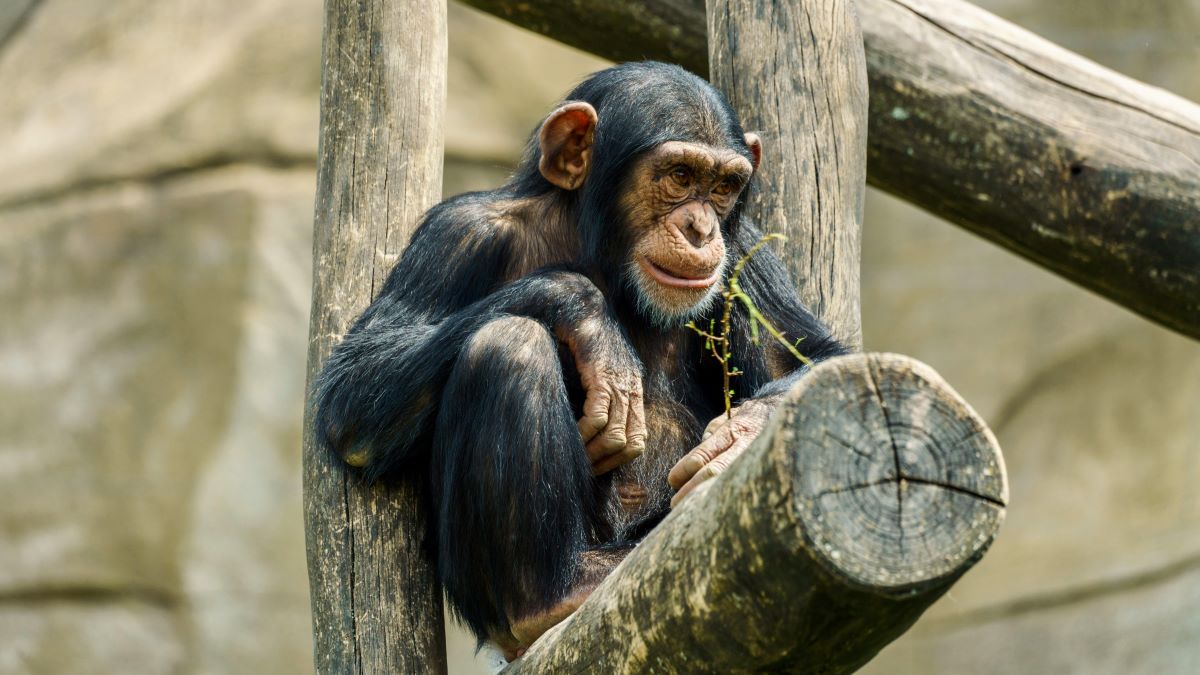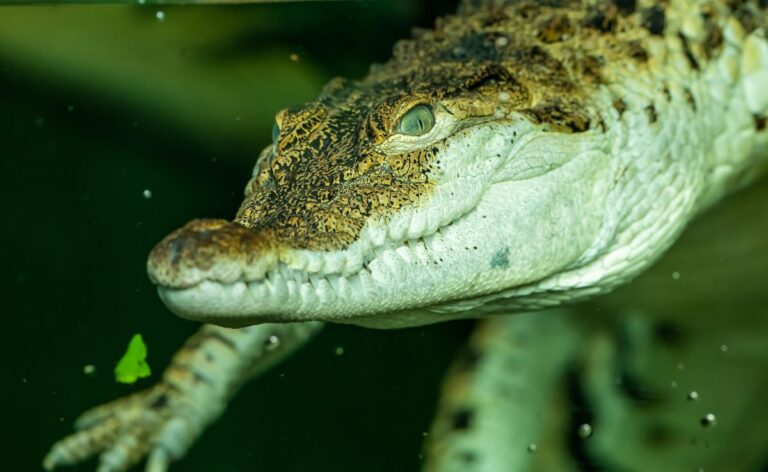Guess What? Chimps Hit Menopause Too—Just Like Us Moms
Ever thought menopause was a human-only experience? Think again! Our primate cousins, the chimpanzees, also go through menopause, and it’s just as much of a rollercoaster for them as it is for us.
Hot Flashes in the Jungle

Imagine swinging from tree to tree while suddenly feeling like you’re in a sauna. That’s what chimpanzees deal with. Just like us, they experience those pesky hot flashes. Researchers from the National Institute on Aging have observed similar hormonal changes in older female chimps.
Mood Swings and Tantrums

One minute they’re grooming each other, the next they’re throwing a fit over a missed meal. Sound familiar? Yup, chimps get those mood swings too. Studies have shown that these mood changes are linked to fluctuating hormone levels, much like in humans.
Grandma Chimps

Even after they stop having babies, older female chimps take on grandma roles, helping raise the young ones. It’s like a primate daycare! Research suggests that these “grandmother” roles help increase the survival rates of their grandchildren, much like the “grandmother hypothesis” in humans.
Orcas Are in the Club Too

Chimpanzees aren’t alone. Orcas also go through menopause, and it helps them stick around to support their families, especially their sons. According to a study published in Current Biology, post-reproductive orcas help their pods survive by sharing their knowledge and experience.
Why Does It Happen?

Scientists are still piecing this puzzle together, but it seems menopause might help these animals focus on raising their existing family instead of making new babies. A study in Nature suggests that this might provide an evolutionary advantage by allowing older females to invest more in their offspring and grandchildren.
Social Superstars

Post-menopausal chimps often become key figures in their groups, forming stronger social bonds and becoming the go-to for wisdom and guidance. These older females often take on leadership roles and are crucial for the social structure of the group.
Aging with Grace

Understanding menopause in chimps can teach us a lot about our own aging process. It’s a wild ride, but we’re all in it together! Scientists hope that studying chimp menopause will lead to better understanding and treatment of menopausal symptoms in humans.
Health Implications

The study of menopause in chimpanzees might offer insights into human health, particularly in areas like osteoporosis and heart disease, which are common concerns post-menopause.
Behavioral Changes

Behavioral changes during chimp menopause include increased cautiousness and alterations in foraging habits, reflecting their adaptability.
Hormonal Insights

Chimpanzees show hormonal shifts that parallel human menopause, which helps researchers understand the biological mechanisms behind these changes.
Family Dynamics

The presence of post-menopausal females strengthens family bonds and stability within chimp communities, showing the broader impact of menopause.
Long-Term Studies

Long-term observational studies of chimp groups have provided valuable data on how menopause affects their social structures and behaviors.
Comparative Analysis

Comparing menopause in chimps and humans helps scientists identify evolutionary patterns and shared traits across species.
Adaptive Strategies

Post-menopausal chimps often adapt their roles within the group, taking on tasks that benefit the community, such as teaching and protecting the young.
Cultural Practices

Chimpanzees have cultural practices that can be influenced by the presence of experienced, post-reproductive females.
Lifespan and Health

Research shows that menopause might contribute to longer lifespans in female chimps, allowing them more time to pass on knowledge and care for the group.
Genetic Factors

Genetic studies of chimpanzees can reveal how menopause evolved and its genetic basis, offering clues for human genetics.
Environmental Factors

Environmental conditions and lifestyle can influence the onset and experience of menopause in chimps, much like in humans.
Future Research

Ongoing research aims to uncover more about the similarities and differences between human and chimpanzee menopause, potentially leading to breakthroughs in medical science.
Conservation Implications

Understanding the life cycles of chimpanzees, including menopause, is crucial for effective conservation strategies and ensuring their survival in the wild.
Toxic Talk: 21 Phrases to Never Say to Your Kids

Are you worried about the impact of your words on your child’s well-being? Let’s tackle 21 phrases that might be causing more harm than you realize. Toxic Talk: 21 Phrases to Never Say to Your Kids
Breaking Ties: Recognizing When It’s Time to Go No-Contact with Parents

Deciding to go no-contact with a parent is a profound, often painful choice, but sometimes it’s necessary for personal well-being. Are you grappling with the decision to distance yourself from a toxic parental relationship? Breaking Ties: Recognizing When It’s Time to Go No-Contact with Parents
Stop the Stereotypes: 20 Gender-Based Comments Kids Don’t Need

It’s time to challenge traditional narratives that limit kids’ potential. Here are gender-specific phrases and ideas to avoid, fostering a supportive and open-minded environment for the next generation. Stop the Stereotypes: 20 Gender-Based Comments Kids Don’t Need
Featured Image Credit: Pexels / Susanne Jutzeler, suju-foto.
For transparency, this content was partly developed with AI assistance and carefully curated by an experienced editor to be informative and ensure accuracy.





